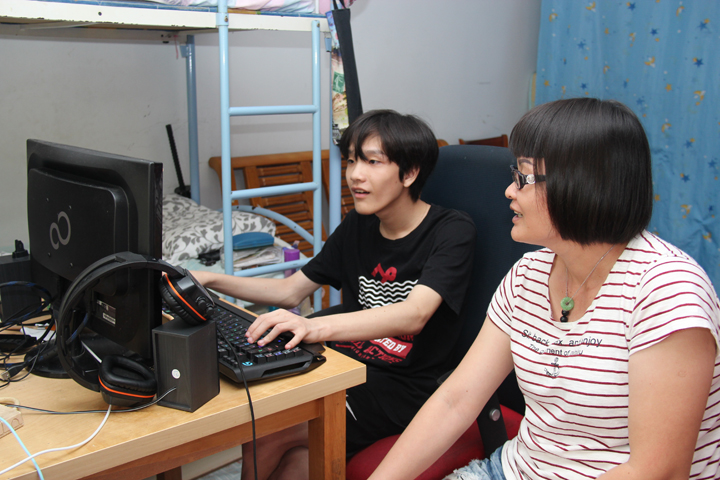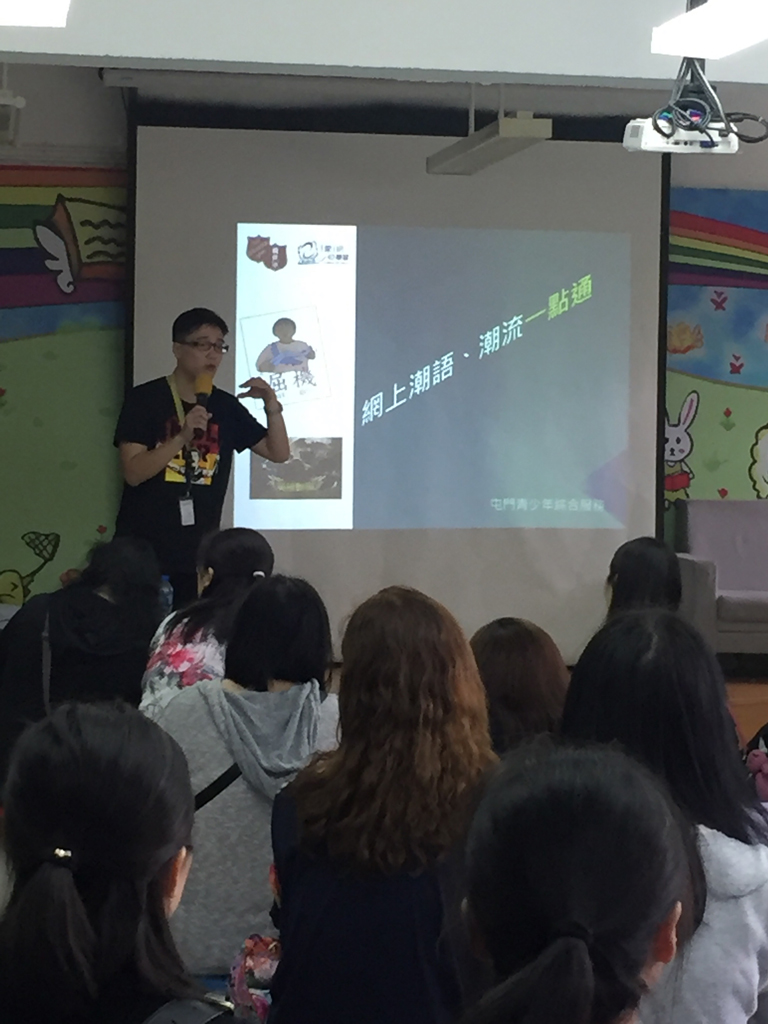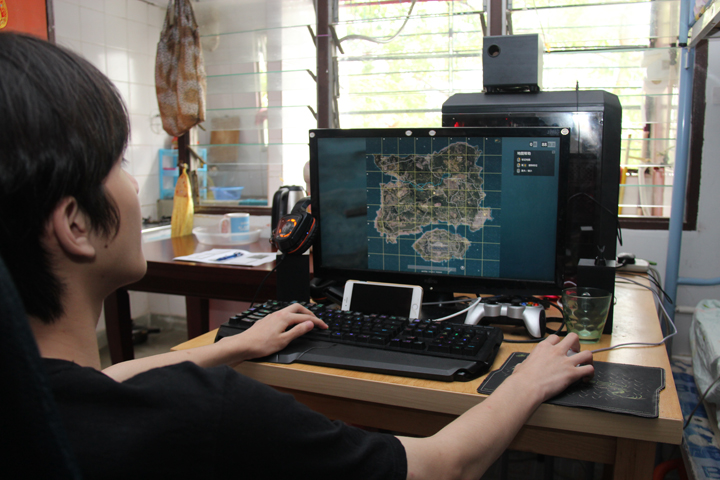Story
Mother Plays Video Games to Improve Parent-Child Communication
Video games cause conflicts in many families. In his mother's eyes, the worst thing about Ka-hei, a Form 5 student, was his addiction to video games. They had quarrels and fights that ended up in reporting to the police. In desperation, the mother joined The Salvation Army’s parenting course, from which she learnt about the culture of the young generation and the video game trends. Since then, she has resumed communication and reduced conflicts with her son.
How far would Ka-hei go for playing video games? ‘I asked him to have dinner when it was ready. He ignored me, left the meal there for an hour and wouldn’t eat it until he won the game.’ Ka-hei’s mother said she had tried all means that were in vain. She even ‘signed a contract’ with him to bribe him to cut back on video games, but to no avail. Finally, she got into trouble out of anger.
Conflicts arise as Angry Mom Pulls the Plug Out
‘It was almost midnight when I asked him to turn off the computer, but he didn’t do as I said, so I unplugged it.’ Her son lost his head. He was so mad he threw stuff around and even hit his mother’s leg. The incident alarmed the police to come to their home. Ka-hei felt guilty for his wrongdoing right then and there. He helped his mom rub some ointment and confessed, ‘I didn’t want to hit you, mom, but I really couldn’t control myself…’
The family harmony was disrupted. The mother and son talked less often. Ka-hei’s mother was worried they would end up being strangers. At this point, she sought help from The Salvation Army and was referred to the WebOrganic programme. From this parenting support course, she learnt about the video game culture from the beginning, in the hope that she could fix broken communication with her son.
Chitchats about Video Games Bridge the Gap
Social workers gave participating parents information about hot computer games, jargons and how video game fanatics communicate. They also encouraged parents to play video games with their children if possible. When the children let down their guards and start talking to their parents, parents can slowly guide their children to control their emotions and adjust their habit of playing video games. Ka-hei’s mother went back home to try the methods she learnt from The Salvation Army. She kept her temper, sat next to Ka-hei, and asked casually, ‘Is this League of Legends?’ She pointed at the screen and asked Ka-hei to teach her to play. Ka-hei was a bit surprised, but he said indifferently, ‘These games are not for you.’ The mother was not discouraged; rather, she kept trying to start conversations with her son by using internet knowledge she learnt from the parenting course.
After his mother’s months of efforts, Ka-hei came to understand that his mother only wanted the best for him. Now he is willing to explain to his mother what he thinks about the games and how he usually plays them. He even teaches her how to play games on the mobile phone. The mother also begins to understand why her son loves video games so much, and is less resistant to his behaviour.
‘I used to ask him to stop playing by midnight, and he would only turn it off after 1 or 2 am. Now I tell him to go to bed at 11 pm, and he will say, “Okay, I’ll go to sleep when I finish this round,”‘ said the mother with a smile. Now Ka-hei realizes that he ‘should show mom more respect no matter what’, and understands that his mother only disapproves of playing for long hours because she cares for him, without the intention of prohibiting video games. Hence, he is willing to exercise some self-control. He puts down the mouse during dinner time. Sometimes he even watches TV and chats with his mother, trying to care about her.
Turning Interest into Career
Ka-hei starts thinking about his future. During the summer holidays, he worked as an intern in a software development company and learnt about programming and Apps design. He wants to study in computer-related courses after graduating from the secondary school to turn his interest into career. His mother is now relieved. She is hoping that her son will be a capable person who can earn his living and also contribute to the society.
Replace Scolding with Curious Questions
Many parents start scolding when they see their children playing video games. They would yell, ‘You are so addicted!’, ‘No way!’ It makes children more resentful and alienated, going from bad to worse.
Fong Ching-pong (1st right), social worker of The Salvation Army Tuen Mun Integrated Service for Young People, pointed out that parent-child relationship is the key to change. He suggested, ‘Try to learn about what the children are playing. When parents stop scolding them and ask curious questions, it makes it easier to start a conversation.’ When parents listen with an open mind and enter the children’s world, their relationship will be improved, and the children will be more accepting of their parents’ suggestions and reflect on their own behaviour. Gradually, they will adjust their habit of playing video games.
WebOrganic Programme
The Salvation Army WebOrganic programme provides services to qualified grassrootsfamilieswithreasonable price including internet access service and computer equipment, programming courses, on-site technical support, enquiry hotline, training for students and parents, group and individual counselling service. The programme specially sets up support groups for parents who are concerned about their children’s internet addiction. Through teaching internet knowledge, computer operation, sharing from those with similar experience and group discussion, the programme helps parents communicate with their children and improve family relationships.










